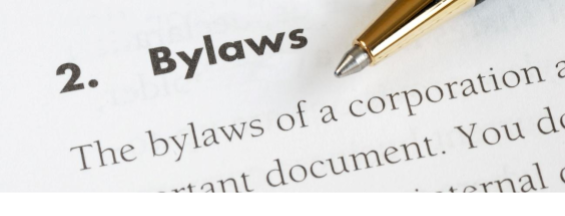
Just like one apple can spoil a barrel, the same holds true for HOA bylaws or any other governing document used to manage your association.
Homeowners associations are governed by a hierarchy of documents that help manage how the overall organization functions. Common documents include, but are not limited to, the association’s by-laws and covenants, conditions and restrictions (CC&Rs).
But it’s often the case that many of these documents have not been updated since the association was first founded, meaning there might be policies in place that are no longer applicable to the community, unintentionally inhibit an authorized agent’s power, or impede on a community member’s rights.
Just like new federal legislation is constantly being ratified to address changes affecting the entire country, there may also be a need to occasionally update or amend the governing documents for your association so that they can optimally benefit the homeowners in your community.
If you are unsure about what documents are being used to govern your association or if they need updating and review, here are a few considerations:
The Document Hierarchy: Who Holds Precedence?
As a HOA board member, it’s important to understand what governing legislation and documents that you have a duty to uphold when managing your respective organization. While conflicts can arise as new provisions are produced, it’s up to you to stay abreast of updates that could impact your organization.
Federal and State Regulations
As a board member, no one can expect you to have a thorough working understanding of complicated federal and state laws and statutes. However, it is important to understand that federal and state regulations hold the highest precedence over all other governing documents.
If you are newly drafting governing documents or having current versions revised, it’s certainly advisable to consult with an attorney who can make sure there are no items infringing upon these federal and state regulations.
One of the biggest federal laws that you want to ensure compliance with, and worth noting, is the Fair Housing Act, which prohibits discrimination by providers of housing*. It’s always best to get the advice of a professional HOA management company.
Maps, Plats, and Plans!
Let’s face it, you might not have personally reviewed the map or plat for your association that is filed with your local county recorder’s office, but nevertheless it is a document that helps govern your association’s property and location.
A specific function of these documents is to record the exact dimensions for each unit, identify easements, and underline setback requirements*.
Other reasons why you should review these documents is to understand areas designated to restrict access to vehicles as well as specific spots where common trash receptacles and enclosures are to be designated*.
Maps, plats, and plans can also be useful if your board is looking to develop an adjacent area*. These documents should designate areas of future development.

HOA Bylaws and CC&Rs
While the declaration of covenants, conditions, and restrictions (CC&Rs) often supersede information set forth in the HOA bylaws, the two documents often work hand-in-hand and are two of the most important governing documents to familiarize yourself with.
The CC&Rs work two-fold by detailing the rights of the homeowners as well as outlining the responsibility of the association and HOA board.
For homeowners, it explains what people can and cannot do, what generally comes with purchasing a home in the HOA, and an underlying agreement to abide by the rules.
Additionally, the CC&Rs include information for the board about assessments, maintenance requirements, and how the board can enforce procedure. It also outlines how violations and disputes should be handled.
In contrast, the HOA bylaws relate more to how an association is supposed to run. This document states the particulars of how the HOA should operate, conduct meetings, and how the voting rights are set.
In some cases, it may have a specific description of duties for the individual roles that board members may hold, such as the president or treasurer.
Do Your Documents Need Review?
Oftentimes homeowners associations get so caught up dealing with budgets and resource management that they fail to review the underlying governing documents impacting the community.
However, it’s important to give your governing documents the attention they deserve to ensure you are meeting the needs of the homeowners you serve as well as staying in compliance with federal, state, and local regulations.
There are several reasons why your governing documents may no longer be facilitating the needs of your organization and, subsequently, the underlying homeowners.
For one, many of the documents, including your CC&Rs, may not have been drafted by an actual real estate attorney. Either they were passed on from board to board and it’s unclear who created them or it’s possible that an attorney who is not an expert in real estate or HOA matters has drafted the documents from some generic template**.
Another problem is that your documents may be dated, addressing older legislation that is no longer relevant or failing to address regulations that are certainly current issues. Laws change frequently so it’s easy for your governing documents to fall behind the times.
If you haven’t had your governing documents reviewed by an attorney, it may be time to get them checked. Many HOA’s already budget for attorney fees in case of delinquent accounts or liability concerns.
Fees can vary depending on location, the individual attorney or firm you select, and if you elect for a simple review or require revisions. It’s a good idea to shop around to compare rates as well as make sure all the services you are looking for are included in their fee.
While it can cost anywhere from $400 to $1,200 to have your governing documents reviewed, it may cost a few thousand dollars to have them completely revised (which includes the bylaws and CC&Rs). Many law firms offer a free review and estimate of fees concerning governing documents.
It may seem like a lot of money upfront, but the cost is nothing compared to the peace of mind it will bring knowing your governing documents are better serving your organization and community.
See the AMC June 2021 workshop on this subject, on YouTube or AMC website.
Is your association dealing with this issue? Consider the advantages of hiring a professional HOA management company like AMC Inc. (Association Management Concepts). We’ll confidentiality review your documents at no charge, even if you’re a self-managed association. Contact us at 916-565-8080 ext. 324, or www.assocmc.com.
___________
Sources
*HOAManagement.com. (2021, February 12). The Hierarchy Of HOA Documents: Which Takes Precedence?: HOAM. Retrieved September 14, 2021, from https://www.hoamanagement.com/hoa-documents-hierarchy/
**Goodman Holmgren Smith. (2020, October 07). Should You Hire an Attorney to Review Your HOA Community Contracts? Retrieved September 14, 2021, from https://goodlaw.legal/hire-attorney-review-hoa-community-contracts/





